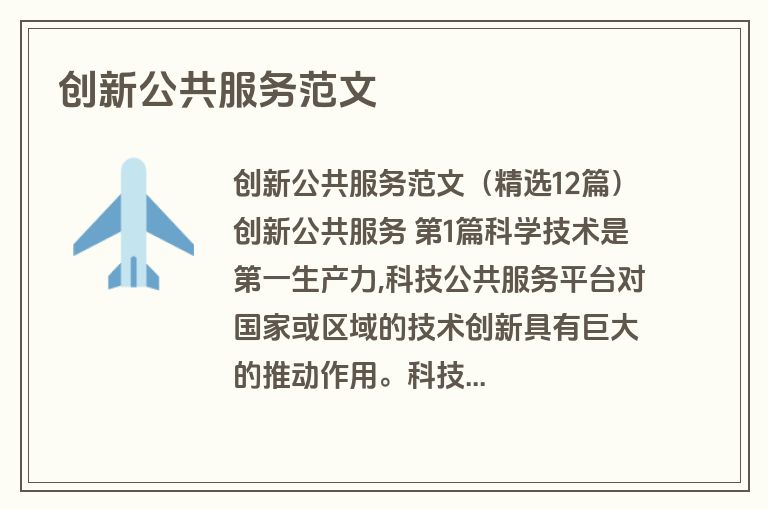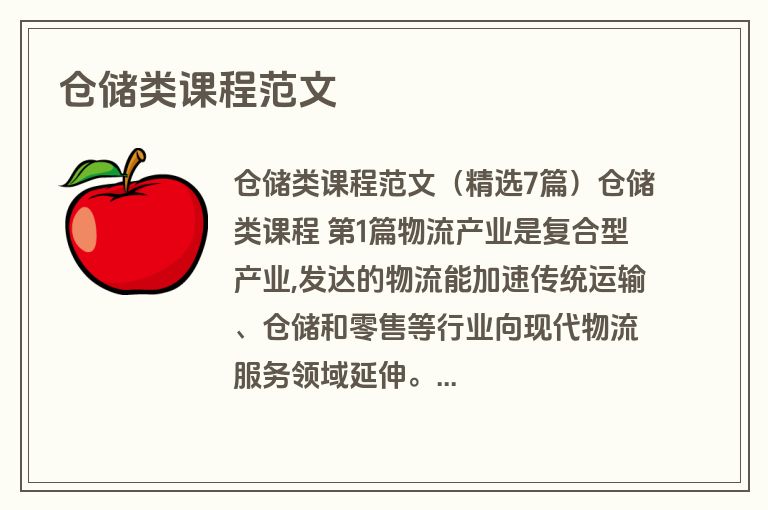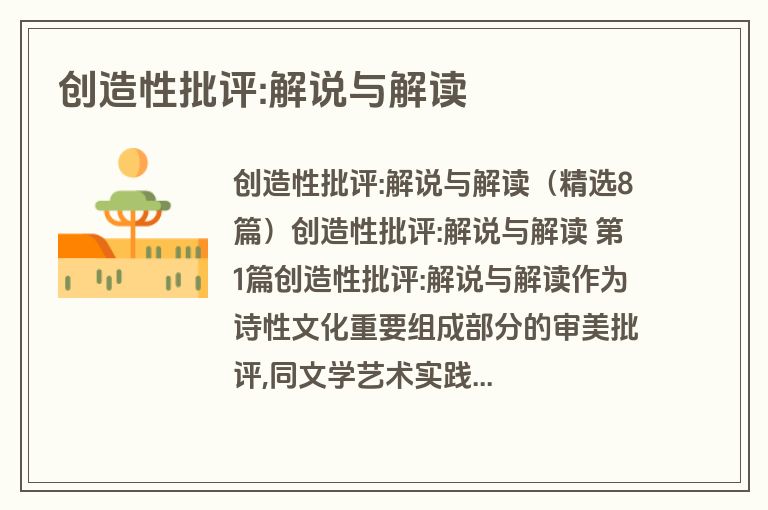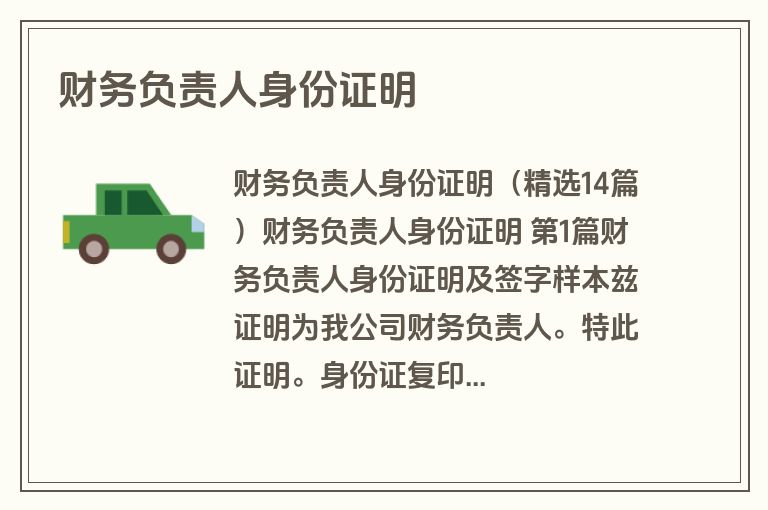仁爱英语八年级下册练习册答案(精选6篇)
仁爱英语八年级下册练习册答案 第1篇
[重难点解析]
1.In Miss Gao’s class, there are forty-six student.高老师班里有46个学生.Miss Gao’s class是名词所有格,现将有关知识介绍给大家.(1)当名词是人名或表示有生命以及被视为有生命的东西时,可以用下列所有各形式.①名词’s.如:John’s book约翰的书
②名词(复数)’s.例如:worker’s room工人们的房间.但是不带s的复数形式仍须加’s.如:Children’s Day儿童节;Women’s Day妇女节.③以s结尾的专有名词可用’s,也可只有’,例如:Dickens’(s)狄更斯的小说.(2)如果某物为两人共有时,则只需在这两个名词后加’s,例如:Mary and John’s cars.(3)表示国家,城市等地方的名词和表时间,距离,度量及金钱的名词是无生命的,但也可用以上形式表所有格,例如:two week’s holiday一个两周的假期.(4)a picture of my family我们家的一张照片 “of +名词”的结构,常用于表示无生命的所有关系,但也可以表示生命名词的所有关系,尤其是当后者有较长的定语时.(5)名词所有格,有时可以代替前面提到过的东西,相当于一个名词性物主代词,例如: These books are Mary’s(hers).这些书是玛丽的.(6)有时名词的所有格也可表示“家”、”商店”,或其他的处所.如:my aunt’s我姑姑家;the Green’s格林家.2.I think he is cleaning the car.我想他在清洗车.如果我们要表示“我想,他没有在干什么”要用这样的句型: I don’t think…….例如:(1)I don’t think he is right.我想他是错的.(2)I don’t think she is watching TV.我想她没在看电视.单元测试
一、找出下列每组画线部分读音与其他三个不同的选项.1.A.near B.wear
C.pear C.meat C.house C.flower C.them C.table C.thank
D.there D.clean D.count D.cow D.then D.grade D.ant 2.A.sweater B.lease 3.A.young B.blouse 4.A.how 5.A.pen 6.A.have 7.A.carry B.row B.men B.same B.has 8.A.orange B.son 9.A.over 10.A.chair
二、选择 B.school
C.some
D.do
C.much
D.brother D.teacher B.go C.home 1.“____?” “Yes, some bread, please.” A.What would you like C.Are there any bread
B.Can I help you D.What do you want
C.I tell D.I to tell 2.Please let ____ you about the news.A.him to tell B.her tell 3.____ there are some trees.A.In front of the house
B.In the front of the house
C.In the house D.In house
4.I have ____ apples, but I haven’t ____ pears.A.some, some B.any, any C.some, any D.any, some A.is A.is B.are C.all D.is all B.are C.is an B.Where’s B.watching
D.are a
C.Whose is D.Who’s C.looking
D.seeing 5.My family ____ watching TV now.6.One of the girls ____ English.7.“____ the blouse?” “It’s on the bed.”
A.What’s A.watch 8.Is the old woman ____ TV?
9.What’s ____ doing?
A.you B.the boys
C.her D.your brother
10.I ____ a cup of tea.A.can B.am C.would like D.could 11.Can he ____ a bike?
A.throw B.ride C.run D.fly
12.These are your socks ____, please.A.put it away B.put away it C.put them away D.put them away A.aren’t A.apples B.isn’t C.is D.are B.bottles
C.egg D.meat 13.There ____ any food on the table.14.There is some ____ in the basket.15.Look, the twins ____.A.come B.comes
C.are come D.are coming
D.footballs 16.Are you playing ____?
A.a football B.the football C.football A.she’s B.she is 17.“Is Kate making cakes?” “Yes, ____”.C.it is D.Kate is
18.There is a bird ____ the tree.A.on B.in C.at D.to A.flying A.a B.flys C.flies D.flying 19.They are ____ kites.20.Let me have ____ look.B.he C.an D./
三、改错
1.What’s the twins doing?
A.B.C.D.A.B.C.C.D.D.2.Look!They is swim in the river.3.My brother isn’t at home.He is at working.A.B.A.B.C.D.A.A.A.B.C.D.4.Not close the window, please.5.The students are listening at their teacher.6.There are some meat on the plate.B.C.D.B.C.D.7.How much bottles of orange are thee on the table?
8.There isn’t some milk in the glass.A.B.C.D.A.A.B.B.C.C.D.D.9.These clothes are yours, put it away, please.10.I want to take the chair in the room.四、答案 1.There is some ____(water)in the glass.2.Are there any ____(woman)n the room? 3.I have two ____(knife)in the pencil-box.4.How many ____(boy)are there in your class? 5.We can see two ____(cup)of tea on the table.6.I ____(ride)my bike now.7.Listen, the girl ____(sing)in the room.8.What are you doing? I ____(clean)the house.9.There ____(be)some water in the glass.10.Don’t ____(close)the window.参考答案:
一、1.A 2.A 3.A 4.B 5.C 6.A 7.D 8.A 9.D 10.B
二、1.B 2.B 3.A 4.C 5.B 6.C 7.B 8.B 9.D 10.C 11.B 12.C 13.B 14.D 15.D 16.C 17.B 18.B 19.A 20.A
三、1.A what’s—what’re 2.C is—are 3.D working—at work 4.A not—on’t 5.D at—to 6.A are—is 7.A much—many 8.B some—any 9.C it—them 10.D in--to
四、1.water 2.women 3.knives 4.boys 5.cups 6.am riding 7.is singings 8.am cleaning 9.is 10.close
仁爱英语八年级下册练习册答案 第2篇
Topic 1 We’re preparing for a food.一.重点句型。Section A
1.Do you know about Craig Kielburger? 你知道克雷格齐尔们?
know about意为“了解”,而know 是”知道,认识”之意,二者意思不同。e.g.I know her.我认识她。
I want to know more about my teacher.我想更多地了解我的老师。
2.He is from Canada and he started Free the Children.他创办了“解放儿童”这个组织。start 有多层含义,此处意为“(使)出现,创办,开办”。
e.g.My uncle starts a shoe factory in his hometown.我的叔叔在他的家乡创办了一家鞋厂。start to do sth.开始做某事; e.g.It started to rain.下起雨来了。
3.He was only twelve years old when he started to help poor children.当他开始帮组贫困孩子时,他年仅12岁。twelve years old 十二岁;数字+year(s)+old 意为“„„岁”,在句子中只能做表语;
twelve-year-old 十二岁的;数字-year(s)-old 意为“„„岁的”,是一个复合形容词,作定语; She is two years old.= She is two-year old.她两岁。
4.Then shall we have a food festival and raise money to give to Free the Children?那么我们举办一次美食节活动来为“解放儿童”筹款好吗? have 是“举办, 举行”之意,相当于hold。e.g.have a sports meeting = hold a sports meeting举行运动会;
We will have a art festival next week.= We will hold a art festival next week.have a food festival 举行美食街;raise money 筹款; 5.I will turn to our teachers.我去向老师求助。
turn to(sb.)= ask(sb.)for help 转向(某人);求助于,求教于;
e.g.Jane is going to turn to her sister.= Jane is going to ask her sister for help.简打算向她的姐姐求助。6.My task is to make a poster.我的任务是制作一张海报。
此句是不定式to make a poster作表语,说明主语的内容。e.g.My job is to look after the baby.make a poster制作一张海报;e.g.Mr.Zhang made a poster for this basketball game.7.I’ll get in touch with Craig Kielburger on the Internet to get more information about him.我将在网上和克雷格齐尔伯取得联系来获得更多关于他的信息。1)get in touch with和„„取得联系;
e.g.I often get in touch with my parents on weekends.我常常在周末和我父母联系。
to get more information about him 意为“为了得到关于他的更多信息”,to 在这里作目的状语。get information about sb.获得关于某人的信息;
8.I will think about how to hold the food festival.我将会认真考虑怎样举办这次美食节。1)think about(认真)考虑;
e.g.—Dad, will you buy me a new bike?—I don’t know.I’ll have to think about it.—爸爸,你能给我买辆新自行车吗?—很难说,我得好好考虑考虑。与think相关的短语还有:think over;think of。
A.think over 仔细考虑, 慎重思考;e.g.I would like more time to think things over.B.think of 考虑到,这时可与think about互换。e.g.Don’t think of/about me any more.不要再考虑我。特殊疑问词how+不定式作动词短语作think about的宾语;
e.g.I often think about how to improve my spoken English.我经常想如何提高我的英语口语。9.Let’s try our best to make it success.让我们尽最大的努力使它成功。try one’s best to do sth.= do one’s best to do sth.尽某人最大努力; e.g.We must try/do our best to study.我们必须尽最大努力学习。10.Free the Children plans to build a school in Kenya.“解放儿童”组织计划在肯尼亚建一所学校。plan to do sth.计划做某事;e.g.I plan to go to America next month.我计划下个月去美国。11.What will the food festival be like?美食节会是什么样子? 12.The children in hospital.生病住院的儿童。
in hospital在那家医院(特指),对方应该知道说话人指的是哪一家 e.g.I work in the hospital.我在医院工作。Section B
1.I have a sweet tooth, and I think a lot of students will buy western food, such as American chocolate cookies and Greek cheese pies.我喜欢甜食,我认为很多学生会买西方食物,比如美国巧克力派和希腊奶酪派。
1)have a sweet tooth 喜欢吃甜食;
e.g.He has a sweet tooth, and now all his teeth are bad.他喜欢吃甜食,现在他的牙齿都坏掉了。western food 西方食物;
2.I think a lot of students will buy western food 是含有宾语从句的复合句,引导词that已省略。such as 例如;
3.That’s good enough.那太好了。
A.enough 作副词时,修饰形容词或副词,表示“足够地,十分地”,作形容词时,修饰不定代词。在这两种情况下,它只可放在形容词,副词和不定代词之后。
e.g.This book is easy enough for you to understand.这本书你很容易就可以看懂。B.enough 修饰名词时,可以置于名词前或名词后。
e.g.I have enough money to buy the book.我有足够的钱买这本书。
C.enough 还可用作代词,表示“够,足够,充足”。既可代替可数名词,也可代替不可数名词,e.g.We’ve nearly run out of paper.Do you think there’s enough for today?
我们的纸差不多快用完了,你看今天够用吗?
4.So my friends and I decided to help you raise some money.所以我和我朋友决定帮助你筹一些钱。decide to do sth.决定做某事;e.g.She decided to learn English well.她决定学好英语。5.May I invite you to our food festival? 我可以邀请你来参加我们的美食节吗?
invite sb to do sth 邀请某人做某事;e.g.I invited my best friends to see a movie yesterday.6.I’d love to , but I’m sorry I can’t, because I have no time these days.A.be sorry相当于be afraid,从句I can’t是省略句,该句完整形式是I’m sorry I can’t go to your food festival.也可说成I’m afraid I can’t go to your food festival.B.be sorry和be afraid后还可接不定式to do, 构成be sorry/ afraid to do sth.形式。e.g.I’m sorry/afraid to do that.我很抱歉/不敢那样做。
类似的用法还有:be pleased to do sth.= be glad to do sth.高兴做某事;
be surprised to do sth.惊奇做某事;
7.Will you please tell me something about yourself and Free the Children?你能告诉我一些关于你个人和“解放儿童”的情况吗?
该句型Will you please...?意为“请你做„„好吗?”,表示客气的请求,后接动词原形。e.g.Will you please go fishing with me?你能和我一起去钓鱼吗? Will you please...?与Would you like...?的区别:
will you please后接动词原形,而would you like后接不定式to do, 且意为“你愿意„„吗?” e.g.Would you like to go fishing with me? 你愿意和我一起去钓鱼吗? 8.I’ll send you an email later on, OK? 等下我给你发电子邮件,好吗? 后面常常带两个宾语,即send+间宾(人)+直宾(物),我们称它为“双宾结构”。这类词还有: give, pass, lend, write, show等。
send sb.sth.可改为send sth.to sb.原句可改为:I’ll send an e-mail to you.但make/buy/draw/sing/get等动词后跟双宾语时,则改为make/ buy/draw/sing/get sth.for sb.e.g.Mother draws a picture for him.妈妈给他画了一幅画。Section C 1.I regret that I can not come.很遗憾我不能去。
regret 意为“感到遗憾、惋惜、懊悔”,后接名词、代词、动名词、不定式或从句。A.regret+从句;e.g.I deeply regret what I said.我非常后悔说了那些话。B.regret to do sth.对要做的事遗憾(未做);
e.g.I regret to say that you have failed your exam.我很遗憾地告诉你,你考试不及格。C.regret doing sth.对做过的事遗憾、后悔(已做); e.g.I regret telling him the truth.我后悔告诉了他真相。
2.He knew children should go to school instead of working in factories all day.他知道儿童应该上课,而不是整日在工厂干活。
instead of sb./(doing)sth.代替,作为„„的替换;e.g.We can go there by bike instead of walking.3.He decided to fight against the bosses.他决定与老板作斗争。fight against sb./sth.与某人/某事做斗争,反对某人/某事;
e.g.The farmers are fighting against the drought.农民们正在抗旱。
4.As a result, a bad man killed him.结果,一个坏人杀害了他。as a result 结果;
e.g.He studied very hard, as a result, he get high scores in all the subjects.他很努力学习,他
5.Soon many children joined us and the group became Free the Children.很快,许多儿童加入了我们并成立了“解放儿童”基金会。
join 加入(人群,组织);join in 参加(活动,比赛);
e.g.There are any amount of clubs you could join.有无数个俱乐部你可以加入。
注意:(1)join可与in连用,后接活动,即 take part in=join in = be in后都接活动。
e.g.He joined in the game.他参加了这场比赛。
(2)join sb.in doing sth.表加入某人的活动。e.g.Will you join us in playing basketball ? 6.I believe one person can make a change.我相信一个人能够作出改变。make a change 做一个改变; change 这边作可数名词,意为“改变”; change 还可做动词,意为“改变”;e.g.Can you change your hair color? 你可以改下你头发的颜色吗? Section D 1.He works for the rights of children.他为(争取)儿童的权利而工作。
1)work for 意为“争取,力争,努力取得”;e.g.Let’s work for our freedom.让我们为自由而战吧。
work for 还有“从事„„的工作”之意;e.g.His father works for a hospital.A.right 此处“权利”之意;e.g.I have the right to say no.我有权利说不。B.right adj.正确的;e.g.You are right.你是对的。
C.right n.右边;e.g.The bookstore is on the right side.书店在右边。2.Let’s make Craig’s dream come true.让我们帮克雷格梦想成真!come true 意为“(希望,愿望)实现,成为现实”。
e.g.His dream came true in the end.= He made his dream come true in the end.他最终实现了自己梦想。二.重点词组。
1.know about
了解; 2.start to do sth.开始做某事; 3.have a food festival
举行美食街; 4.raise money
筹款;
5.turn to(sb.)= ask(sb.)for help 转向(某人);求助于,求教于;
6.make a poster
制作一张海报; 7.get in touch with
和……取得联系;
8.get information about sb.获得关于某人的信息; 9.think about 10.think over 力;
12.plan to do sth.计划做某事; 13.make tea
14.cook soup
沏茶;
煲汤;
(认真)考虑;
仔细考虑, 慎重思考;
33.Italian pizza
意大利披萨; 南美洲牛肉; 俄罗斯黑面包 谈论; 炒米粉; 决定做某事;
34.South African beef curry 35.Russian black bread 36.tall about 37.fried rice
38.decide to do sth.很遗憾/不敢做某事;
39.be sorry/ afraid to do sth.40.send sth to sb.= send sb.sth.送某物给某人;
pass sb.sth.= pass sth.to sb.传给某人某物;
kick sb.sth.=kick sth.to sb.踢给某人某物;
throw sb.sth.= throw sth.to sb.扔某物给某人;
bring sb.sth.= bring sth.to sb.给某人带某物;
teach sb.sth.= teach sth to sb.教某人某物;
give sb.sth.= give sth.to sb.给某人某物;
buy sb.sth.= buy sth.for sb.给某人买某物; make sb.sth.= make sth.for sb.为某人做某物; 41.email address 43.make a change
邮箱地址;
42.invite sb to do sth
邀请某人做某事; 改变; 11.try one’s best = do one’s best 尽某人最大努15.make cheese pies
做奶酪派; 16.make chocolate cookies
做巧克力饼干; 17.make biscuits 19.set the table
做饼干;
摆放桌子; 制作果汁; 制作海报; 在贫困区; 盲童; 老人; 住院; 打扫房子; 使某人振作; 喜欢吃甜食; 西方食物; 例如; 印度咖喱; 而且; 18.make strawberry pancakes 做草莓馅饼; 20.make fruit juice 21.make a poster 22.in poor areas 24.the old people 25.in hospital 27.cheer sb.up 26.clean the houses
44.regret to do sth.对要做的事遗憾(未做); regret doing sth.对做过的事遗憾、后悔(已做); regret+从句
遗憾……;
炸鸡;
45.fried chicken
46.instead of sb./(doing)sth.代替,作为……的替换; 47.fight against sb./sth.与某人/某事做斗争,反对某人/某事; 48.as a result
结果; ……岁; 出生于……;
49.at the age of
50.be born in…
51.work for
23.the blind children
28.have a sweet tooth 29.western food
30.such as
31.Indian curries 32.What’s more
仁爱英语八年级下册练习册答案 第3篇
1. Knowledge objects
New words: pale, terrible, been, had better
Target language: What’s wrong with you?
I have a.
You should/ shouldn’t/ had better/ had better not.
2. Ability Objects
Reading, writing and speaking skills
Comprehensive competence
3. Moral object
Smile at life. Be happy to be healthy.
Ⅱ. Teaching difficult and key points
The target language.
Ⅲ. Teaching procedures
Step Ⅰ: Warm-up
“That’s me” game. Give the students some sentences. If they are ture for them, they should stand up and say “That’s me”.
Step Ⅱ:Review
A: Brainstorming
Ask students to retell the names of illnesses.
B: Giving advice
Giving the right advice according to all kinds of illnesses.
C: Oral practice
Ask students to make conversations.
Step Ⅲ: Presentation
A: Listen and answer the questions.
⑴What’s wrong with Bruce?
He has a headache and a cough.
⑵How long has he been like this?
He has been like this for two days.
B: Listen again and fill in the blanks.
S: Hey, Bruce. You look pale. What’sthe matter?
B: Well, I am feeling terrible! I have a headache and a cough.
S: I’m sorry to hear that. How long have you been like this?
B: Two days.
S: Maybe you have a cold. You’d better go to see a doctor.
B: I think I will.
S: Shall I take you to the hospital?
B: No, thank you. I’ll go home and rest now, and then see a doctor tomorrow.
C: Fill in the blanks according to the conversation.
There is something wrong with Bruce. He feels terrible. He has a headache and a cough. And he has been like this for two days. Steve suggests ( 建议 ) that he had better go to see a doctor.
Step Ⅳ: Pair work
Make conversations after the exam-ple.
Example:
I have a sore throat. What should I do?
You’d better drink hot tea with hon-ey.
You shouldn’t eat hot food.
Step Ⅴ: Project
How to make ourselves/ our good friends/ teachers/ parents keep away from illness and healthy?
Ask the students to write a letter. Example:
Dear,
I think you are too tired these days.
You should eat/drink and have a good sleep. You’d better not.
It will make you feel better.
I love you forever.
Yours.
Step Ⅵ: Sing a song with the rhythm of The Day You Went Away.
What’s wrong with you?
I have a fever.
You should drink plenty of boiled wa- ter and have a sleep.
What’s wrong with you?
I have a sore throat.
You should drink hot tea with honey and take a rest.
You should do some morning exer- cise.
And change your bad habits.
Hey, smile at your life, and be happy to be healthy,then you will be happy.
Step Ⅶ: Homework
Write a letter to your friends who is ill.
Give him/ her some advice.
Step Ⅷ: Blackboard design
Unit 2 Keeping Healthy
Topic 2 You should go to see a den- tist(Section B)
pale A: What's wrong with you?
terrible B: I have a.
been A: You should/ shouldn't/
had better had better/ had better
had better not not
StepⅨ:教学反思
本节课的教学设计的创新之处在于以多种教学活动巩固完成同一教学任务。如,本节课的对话教学,我设计了以下几个步骤:①学生对话;②听对话,填空;③归纳填空。通过这三个部分的学习,学生对本节课的目标语言有了很好的掌握。
人教版《新目标》英语八年级下册 第4篇
本单元谈论的话题是“Fun places”,其功能项目是“Talk about past experiences”,通过对比、使用现在完成时态、一般过去时态谈论过去曾经去过的地方. Section A的内容是在复习巩固一般过去时用法的基础上学习使用Have you ever been to…这个句式表述过去曾经去过的地方。
学情分析:
八年级学生已经具备了一定的语言知识,能够就简单的话题进行小组讨论,并且已经接触了多种时态,学习使用现在完成时态表达过去曾经去过的地方,难度不是很大。根据教学对象的特点,合理运用多媒体辅助教学,通过师生间的闲聊、动画片欣赏、创设情境等方式,优化课堂教学结构,培养学生综合语言运用能力,提高课堂教学效率。
设计思路
通过情境导入提出Have you ever been to…? 的问题,引导学生积极参与课堂口语交际,学习使用新的词汇和短语,来训练和强化现在完成时态句型Have you ever been to …?的答语形式,,最终达到使用该句型描述过去的某个经历。
教学目标
1、知识目标
掌握现在完成时态句型Have you ever been to ……?及答语形式Yes,… have/ No, … haven’t;通过情景设置、两人一组对话练习、小组合作等方式学会谈论过去曾经到过的地方。
2、能力目标
通过情境导入来引导学生谈论过去发生的事,提出Have you ever……?的问题,继而引出一些新的词汇和句型,然后通过精讲多练的课堂教学来达到本节课的教学目标。
3、情感目标
以学生的某种经历为依托,培养学生热爱家长、热爱生活、热爱大自然的美好情怀。
教学重难点
1. 掌握重点句型Have you ever been to an amusement park? Yes, I have. /No, I have never been to an amusement park.學会使用该句型与其他人谈论过去曾经去过的地方,并能对该地的风景、娱乐等方面进行简单的描述。
2. 熟练运用现在完成时态句型Have you ever been to…?描述过去曾经去过的地方,并能就这个话题进行讨论。
教学设备
多媒体教学课件
教学方法
分层教学法、任务型教学法
教学流程
Step 1 Warming-up
1. Make conversations with some students to talk about past events.
T: Tom, what did you do yesterday?
S1:I played basketball.
T:(writing the words on the board) Tom played basketball yesterday. (to another student) Mary, What did you do last Sunday?
S2:I went to the zoo.
T:(writing on the board) Mary went the zoo last Sunday.
2. Make a short conversations in pairs. (两人一组进行以上的对话练习)
( 设计意图:用闲聊的方式带领学生走进课堂,给学生创造轻松愉快的学习氛围,学生容易接受。 同时以简单的对话方式复习前面所学的内容,过渡自然。小组对话练习不但可以提高学生对过去发生事情的表述能力,还可以提高他们的听说能力,达到较好的复习效果,为新课的学习做好铺垫)
Step 2 Leading in
1. Learn the new sentence “ Have you ever been to …?” with some pictures. ( 长城、北京、红峪上庄) T: I went to the Great Wall last week.
I have ever been to the Great Wall. Have you ever been to the Great Wall?
Yes, I have. / No, I haven’t.
2. Practice in pairs by using some pictures.
提示句型:
A: Have you ever been to …?
B: Yes, I have. (No, I haven’t) Have you ever been to…?
A: Yes, I have./ No, I haven’t.
(设计意图:用学生熟悉的图片引出本节课的重点句型,学生用已学过的单词操练新句型,降低学生的学习难度,小组对话练习提高学生的小组合作能力,重点句型提示能帮助不同知识层面的学生完成教师布置的任务。)
Step3 Learning new words
1.Watch a short play (Disney 动画片)
2. Learn the new words by some pictures. Using some Disney Character to talk about the amusement park.
3. Practice in pairs (Ask some students to practice in pairs)
4. Talk about 1a
(设计意图:使用Disney动画片《猫和老鼠》引出“游乐园”这一话题,通过视听感官激发学生的学习积极性,提高学生们参与口语活动的热情,简单的两人一组的对话降低了口语练习的难度,使不同英语基础的学生都能具有成就感)
Step 4 Listening
1. 1b Listen. Have these students ever been to these places?
2. Read the listening materials loudly.
3. Talk about the places that Claudia and Sarah have ever been to.
(设计意图:谈论听力材料中的人物曾经的经历又将听力内容进一步升华,增加了一定的难度,学生不但要听懂听力材料,而且还要能用自己的话进行表述,在此项活动中,学生的听力、口语、语言表达能力都能得到不同程度的提高)
Step 5 Groupwork
Talk about your unforgettable place that you have ever been in groups.
(温馨提示:Have you ever been to …? When did you go there? How did you go there ?Have you taken any photos there? Bring some of your photos here and write a short composition to introduce the place you have ever been to.)
(设计意图:谈论自己曾经到过的难忘的地方,对于部分学生来将有一定的难度,以小组活动的方式来完成,做到人人参与,共同进步)
Step 6 Homework
1. Make a survey (小组合作,共同完成)
《家乡知多少》,谈谈对自己家乡的认识,比如:曾经到过哪些旅游景点,什么时间、怎么去的那里?你对家乡旅游景点的看法?都做了什么?等等)
Where have you ever been?
When did you go there ?
How did you go there ?
What did you do there ?
How do you like it ?
做完调查之后,让学生来做汇报。
(提示句型:Report : ***has ever been to … .
He / She went there ***.
He /She went there by ***.
He /She ***. He /She thinks it’s ***.)
2. Write your unforgettable place that you have ever been .
(温馨提示:Have you ever been to …? When did you go there? How did you go there ?Have you taken any photos there? Bring some of your photos here and write a short composition to introduce the place you have ever been to.)
仁爱英语八年级下册练习册答案 第5篇
2014八年级下册人教版英语练习册第一单元课时一答案
课前导学 1<1—5> footeyesmouthnecksback2 <1---5>headacheliewellstormache matter sore backthroatdrinkhavetoothache课后导练<1—5>BACBC
<1----5> should notwhat..withshould….getwhat’swrongsee..doctor
仁爱英语八年级下册作文归纳 第6篇
1.每个人都不可能没有烦恼。当你有烦恼时, 请试着控制你的情绪, 因为情绪可以影响你生活中的很多方面。所以生活中我们应当相信自己, 笑对人生, 多与父母、朋友沟通。
请展开你丰富的联想,写一篇短文。
要求:意思连贯、通顺,词数在60—80之间。
提示词语:feel happy, mirror, the best, help others in need, believe, have a nice day, express, feelings, talk with...Nobody can be happy all the time.When you become unhappy, you should try to control your feelings.Because bad feelings can make you lose your friends and give you other bad effects.Here are some ways to make you feel better.(1)Look in the mirror and speak to yourself, “I’m the best in the world.I can do anything.”
(2)Do something for others.You will feel happy if you always help others in need.(3)Smile when you get up in the morning and believe you will have a nice day.(4)Write down your thoughts, dreams or anything you want.Writing always helps you express your feelings.(5)Stay with your family.You may talk with your parents, relatives, friends and so on.Topic Three
2.在日常生活中会出现一些让我们觉得烦恼的事情,然而每一件事情都有解决的办法。请写一篇短文谈谈令你烦恼的事情和你是怎样解决这些问题的。
要求:意思连贯、通顺,词数在60—80之间。
Not everything is interesting in life, but we still have to face them.Sometimes I feel worried when I make some silly mistakes in the exams.Sometimes I feel bored when my parents don’t allow me to play.And sometimes I feel annoyed because I have so much homework to do.That kind of feeling is really bad.So I will do something different to relax myself or think about other things.For example, I can listen to the radio and some soft music.Besides, I often talk with my good friends.Then I become happy again.You can have a try!..3.上个星期天晚上,你和家人一起去看京剧。谈谈去之前你的心情及看过之后的体会。词数
60个左右。
提示词语:look forward to..., national opera, express Chinese culture, famous stories, facial paintings, wonderful gestures and fighting, have a nice evening...开头已给出,不计入总词数。
(B)
Last Sunday evening, my father, mother and I went to see Beijing Opera.I was looking forward to seeing it, because I heard that it was our national opera with a history of 200 years.It expresses Chinese culture.It’s full of famous stories, beautiful facial paintings, wonderful gestures and fighting.On the night before we started, I felt so excited that I couldn’t sleep well.When we got to the theater, I found there were so many people there.They looked very excited, too.Then I had a nice evening there.After seeing it, I think it is really wonderful.4.为自己设计一个旅行计划,要包括下列问题:
1.想去哪?为什么?
2.想在那儿待几天?
3.怎么去?
4.打算什么时候开始旅行?
5.在这次旅行期间,打算做些什么?
要求:意思连贯、通顺,词数在60—80之间。
提示词语:countryside, air, food and vegetables, environment, fresh, quiet, poor, give, the school things...A plan for a trip
1.I’d like to go to the countryside for a trip because the environment there is quite good.The air there is fresh, and I can enjoy a quiet life.The food and vegetables are good, too.2.I’m going to stay for a week.3.I’ll go by bike.In this way, I can take exercise as well.4.I’ll go tomorrow morning.5.When I go, I’ll take some school things, like books, pens, pencils and so on.I decided to
give them to the poor students in the countryside.And I’ll try my best to help them with their study.6.I think I’ll be very tired but I’ll enjoy myself.Topic Two.根据以下中文提示,以“Travel”为题写一篇60—80词的短文。
1.当你工作或学习感到厌烦时,可以选择旅行。休闲的同时也可以领略大自然的美丽风光,呼吸新鲜空气,结交新朋友,散心等。
2.有时旅行会有烦恼,如天气多变、被雨淋湿等。
3.出发前应充分了解天气情况,最好结伴同行,可以互相照应,以免发生意外。
除以上需要注意的几点,可根据你的理解自由发挥。
提示词语:be tired of doing sth., enjoy the beauty of nature, breathe, prepare yourself, companion, cause accident...Travel
Travel is a very good activity.When you are tired of working or studying, or when you have time, you can go to a beautiful place to enjoy the beauty of nature.You can breathe fresh air, make some new friends, relax yourself and so on.But sometimes it may cause trouble.The weather often changes.You may get wet in the rain and may have a cold.You should prepare yourself carefully before your trip.You should know something about the weather.You’d better find a companion so that you can help each other to avoid accidents.In this way, you’ll have a wonderful trip.Topic Three
6.随着人口的增长和家庭轿车的普及,交通安全问题已成为千家万户关注的焦点。作为初中生的你是怎样去上学的呢?围绕下面的几点要求展开思考,写一篇60—80词的短文。
1.乘什么交通工具去上学?是公交车,小汽车还是自行车?
2.乘车时应注意哪些交通规则?
要求:结构完整,条理清晰,语言通顺。
Do you like riding a bike? I like it very much.I am a student in a middle school.I often go to school by bike, because it is good for our body.It makes us healthy and saves energy.But we must obey the traffic rules.We should ride a bike slowly and ride it on the right-hand side of the road.If the traffic lights are red, we must stop.Now let’s leave cars and buses, and just cycles.Unit Six
7..根据中文和英文提示词写出意思连贯、符合逻辑的短文。所给英文提示词须全都用上,词数在60—80之间。
假如你叫刘辉,是仁爱国际学校的学生。美食节过后,你和同学们积极清理现场,捡废纸,拾塑料瓶,再卖到回收中心,然后给贫困地区儿童捐款。
提示词语:废纸 waste paper;塑料瓶 plastic bottle;回收中心 a recycling center;捐钱 donate the money;贫困地区 poor areas
My name is Liu Hui.I’m a student in Ren’ai International School.I know some children in poor areas need money for school.So my friends and I decided to collect waste paper and plastic bottles after the food festival.After we cleaned the playground of our school, we sold all the waste paper and plastic bottles to a recycling center, and then donated the money to the children in poor areas.Although we felt very tired on that day, we were very happy!
8.昨天是母亲节,你为妈妈做了一道水果沙拉。根据参考词汇,用英语写一篇短文,叙述
你制作水果沙拉的过程。词数在60个左右。
1.Wash different fruits and peel(剥皮);
2.Cut them and mix them up(混合);
3.Add salad, cream and stir(搅拌).Mother’s Day
Yesterday was Mother’s Day.I made a dish of fruit salad for my mom.First, I took an apple, a pear, some purple grapes, an orange and some bananas.Then I washed and peeled them.After that I cut them into small pieces and put them on the plate, and then I added some sugar, a little salad and some cream.The last thing I did was to stir and mix them up.I put the purple grapes around the plate, and my fruit salad looked more beautiful.After I finished my fruit salad, I put it on the table and sang some songs to my mom.My mom felt so happy, and I was very happy, too.9..你所在的地区要举办一届服装节,你要负责传统服装的介绍。中国的服装有着悠久的历史,最具代表性的有唐装、旗袍„„请你对自己熟悉的传统服装作个介绍。词数在60—80之间。Ladies and gentlemen,It’s my honor to introduce Chinese traditional costumes to you.First, let’s look at the Tang costume.The Tang costume stands for Chinese history and fashion culture.It has a long history.It became known to other countries during the Han and Tang dynasties.People can wear it on casual or formal occasions.It expresses both the wearer’s personal style and China’s rich
traditional culture.Now let’s see another Chinese traditional costume—cheongsam.People usually call the cheongsam “qipao” in most parts of China.It came into history in the Qing dynasty and began to become popular in the 1920s.Now more and more people like it.Many foreign women like it, too.That’s all.Thank you for listening.10世界上有许多种爱,母爱、父爱、师生情、手足情等等。你已是一名中学生了,在十几年的关爱中慢慢长大,母爱的细腻、父爱的含蓄„„请你以自己的切身体会,写一篇60词左右的短文,介绍一下在你的心目中哪种爱最伟大。
要求:1.通过一则细小的事情体现„„爱的伟大
(B)
There are many kinds of love in the world, such as mother’s love, father’s love, friends’ love and so on.But I think mother’s love is the greatest of all.When I was young, my mother taught me to walk, speak and think.She took good care of my life.When I grew up little by little, my mother helped me to study well.She tried her best to keep me healthy.She often talked with me like my good friend.I’m lucky to own mother’s love.I wish everyone in the world could own mother’s love!
11..假定在2009年10月1日,星期天,你和父母一起去游览长城,回来后你用英语写一篇日记。请根据下列提示写一篇文章,要求60
食品和饮1.我们带了2.在长城上,我想到了长城的悠久历史,父亲还
3.我看到了许多外国朋友。这一天我们玩得很开心。
SunnyOct.1Friday







